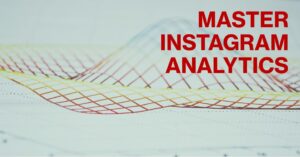A Comprehensive Guide to Chronological Age Calculators
Knowing one’s chronological age is paramount in various aspects of life. Whether for medical, educational, or social reasons, accurate age determination is pivotal in assessing growth, development, eligibility for specific activities, and making important life decisions. Chronological age refers to the number of years a person has lived since birth, and it holds significant value in medical assessments, educational placements, legal contexts, and various other societal applications. In recent years, technological advancements have led to the development of sophisticated tools known as chronological age calculators, which accurately assess a person’s age based on specific data inputs.
Understanding Chronological Age
Chronological age is distinct from biological age, which considers an individual’s physiological changes and aging processes. While biological age measures the body’s functional state, chronological age solely considers the time elapsed since birth. It remains essential in assessing a person’s general well-being, health, and life stage. Genetic factors, lifestyle choices, and environmental conditions influence chronological age. Understanding one’s chronological age is crucial in medical settings to assess growth and development, in educational settings to determine academic placement, and in social scenarios to establish eligibility for certain rights and responsibilities.
How Chronological Age Calculators Work
Chronological age calculators operate on complex algorithms and methodologies to accurately determine a person’s age. These tools employ various statistical models, regression analysis, or date comparisons to calculate the chronological age based on the provided data. The most common method involves subtracting the birth year from the current year to determine the years since birth. Alternatively, some calculators utilize large datasets and advanced statistical techniques to estimate age accurately based on data points. The reliability and accuracy of the calculator heavily rely on the precision and correctness of the data provided.
The Pearson Chronological Age Calculator
The Pearson chronological age calculator is a renowned age assessment tool developed by Pearson, a reputable name in educational and psychological assessment. Pearson’s calculator utilizes sophisticated algorithms and vast datasets to determine a person’s chronological age accurately. This calculator has gained popularity and trust among professionals in various industries due to Pearson’s reputation for delivering reliable and scientifically validated assessment tools. The Pearson chronological age calculator has proven effective in diverse contexts, making it a preferred choice for many users.
Using the Pearson Chronological Age Calculator
Using the Pearson chronological age calculator is a straightforward process. Users need to input the individual’s date of birth and relevant demographic data, such as gender or geographical location. The calculator then processes the information and provides the person’s chronological age in years. Users must ensure the accuracy of the data provided to obtain reliable results. While the Pearson calculator is known for its precision, users should interpret the results cautiously, considering any potential errors in data entry or limitations of the underlying algorithm.
Other Chronological Age Calculators
In addition to the Pearson chronological age calculator, several alternative age calculators are available in the market. Each calculator may employ different methodologies and algorithms to assess age accurately. Some calculators may be designed for specific age groups or applications, such as pediatric age calculators for children or senior age calculators for older people. Users should compare these tools to understand their strengths and limitations better. For instance, some calculators may excel in medical contexts, while others may be more appropriate for educational or social assessments.
Applications of Chronological Age Calculators
Chronological age calculators find diverse applications across various fields. In medical settings, they assist healthcare professionals in evaluating a child’s developmental progress, identifying growth issues, and assessing age-related health risks. These calculators also aid in determining the appropriate treatment and interventions for patients. In educational settings, age calculators play a crucial role in determining the academic placement of students, especially when transferring between different school systems. Additionally, chronological age remains critical in determining eligibility for various activities, legal purposes, and age verification in different contexts, such as purchasing age-restricted items or participating in certain sports.
Addressing Concerns and Limitations
Despite the accuracy of chronological age calculators, particular concerns and limitations must be acknowledged. Data inaccuracies, user errors, or inadequate algorithms can lead to inaccurate results. The quality of the output heavily relies on the accuracy of the data input, making it imperative for users to ensure precision. Moreover, using age calculators for specific purposes may raise ethical considerations, such as age verification for age-restricted activities or legal decisions based solely on age.
The Future of Chronological Age Calculators
As technology advances, the future of chronological age calculators appears promising. Integrating artificial intelligence (AI) and machine learning in age assessment tools may lead to more accurate and efficient calculations. Ongoing research and advancements in age assessment technology will continue to refine these tools and expand their applications. Chronological age calculators can revolutionize age assessment across industries, impacting healthcare, education, law, and other sectors.
Conclusion
The importance of knowing one’s chronological age cannot be overstated. Chronological age calculators offer an accurate and efficient means to determine age for medical, educational, and social purposes. While the Pearson chronological age calculator is a reliable choice, users should explore various calculators based on their needs. Responsible and judicious use of age assessment tools is paramount, considering potential inaccuracies and ethical implications. The future of chronological age calculators holds immense potential, revolutionizing age assessment and benefiting individuals and society. As technology evolves, these tools will play an increasingly vital role in various industries, shaping how we perceive and use age-related information.













